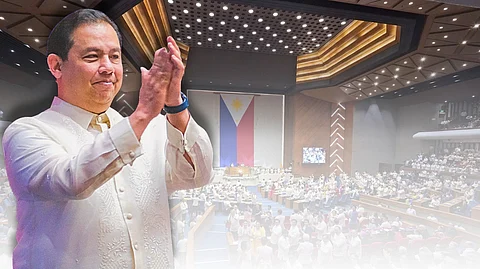
- NEWS
- the EDIT
- COMMENTARY
- BUSINESS
- LIFE
- SHOW
- ACTION
- GLOBAL GOALS
- SNAPS
- DYARYO TIRADA
- MORE

As the 20th Congress opens on July 28, the House of Representatives begins a new legislative term with renewed public trust, institutional momentum, and a clear record of performance. The 19th Congress, under the leadership of Speaker Ferdinand Martin G. Romualdez, marked a period of steady institutional rebuilding—characterized by legislative discipline, national alignment, and rising public confidence.
In the final months of the 19th Congress, survey results reflected a significant and sustained improvement in how the public viewed the House.
According to Social Weather Stations (SWS), trust in the institution rose sharply—from 34 percent in April 2025 to 49 percent in May, and peaking at 57 percent in June. This rise coincided with an equally notable increase in the personal trust and approval ratings of Speaker Romualdez himself, who consistently placed among the top-performing national officials in independent surveys during the same period.
The parallel trend between institutional trust and leadership approval was not coincidental. It reflected a dynamic where the public saw in the Speaker a stabilizing force and in the House an institution capable of focused, responsive governance. As Speaker, Romualdez prioritized performance over politics, steering the chamber away from polarizing debates and toward meaningful, measurable output.
Under his leadership, the House aligned closely with the Marcos administration’s Bagong Pilipinas agenda and the Philippine Development Plan 2023–2028. This alignment was not merely symbolic; it was legislative in nature. Of the 28 priority measures identified by the Legislative-Executive Development Advisory Council (LEDAC), the House passed 27. Of the 64 bills listed under the Common Legislative Agenda, 32 became law during the 19th Congress.
These laws covered key sectors: economic recovery, health system improvements, digital transformation, food security, public safety, and education. Instead of high-profile but shallow reforms, the House focused on institutional impact—creating laws that strengthened public service delivery, enhanced economic competitiveness, and responded directly to social needs.
The Speaker’s ability to unify a broad and diverse coalition of political parties within the House enabled smooth legislative operations. Despite highprofile national issues—from budget tensions to impeachment proceedings— the House avoided dysfunction and maintained productivity. The result was a chamber that gradually rebuilt its image as a dependable and effective branch of government.
Public opinion reflected this. While trust in many institutions wavered amid political controversies, both the House and its leadership defied the trend. Speaker Romualdez’s personal ratings benefited from his steady visibility, policy focus, and measured public posture. He was not only viewed as a political leader, but also as a manager of consensus—traits that translated into broader institutional respect.
The opening of the 20th Congress presents an opportunity to sustain and deepen these gains. The expectations are higher, as is public scrutiny. But with institutional trust already rebuilt and leadership credibility reaffirmed, the House enters this new chapter with a stronger foundation than it had in years.
The legacy of the 19th Congress is clear: the House reestablished itself as a center of legislative productivity and public trust. At the same time, its leader—Speaker Ferdinand Martin G. Romualdez—emerged as one of the most credible and effective political figures of his time. The success of the 20th Congress will be measured by how these gains are protected, enhanced, and translated into broader social progress.
